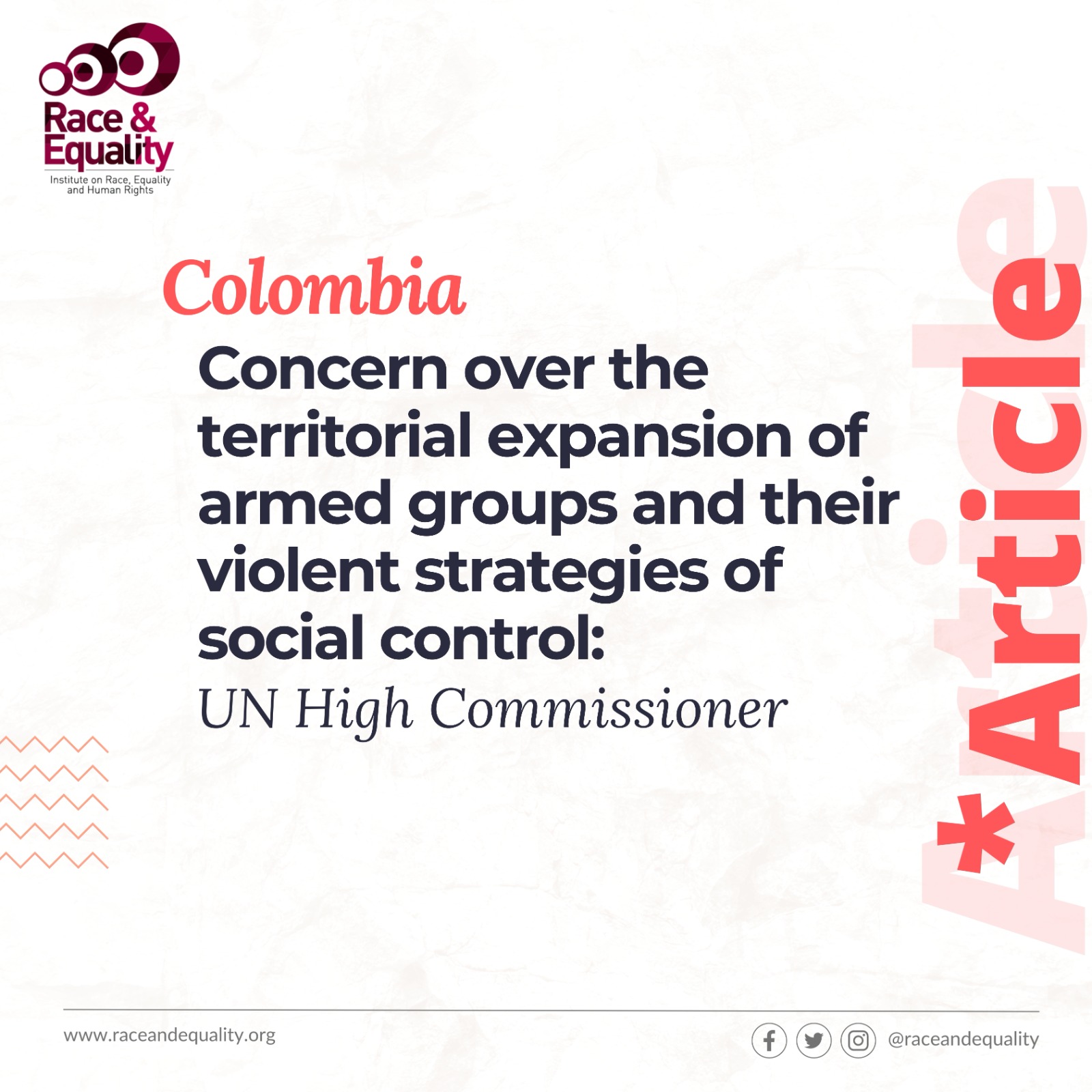Colombia: Concern over the territorial expansion of armed groups and their violent strategies of social control. UN High Commissioner.
Colombia, August 22, 2023.- The Colombian Office of the United Nations High Commissioner for Human Rights presented its analysis of Colombia’s human rights situation, in which it recognized the current […]

Colombia, August 22, 2023.- The Colombian Office of the United Nations High Commissioner for Human Rights presented its analysis of Colombia’s human rights situation, in which it recognized the current Government’s approach to human rights, its willingness to address important issues, and its commitment to the protection of human rights, which has resulted in significant and positive changes. However, the Representative in Colombia of the United Nations High Commissioner Juliette De Rivero, highlighted the concerns and challenges that the Office has observed in the country and that require immediate attention.1 In particular, she expressed concern about the territorial expansion of armed groups and their violent strategies of social control over the civilian population and grassroots organizations, despite dialogue processes offered.
Increase in massacres in the country
During the first half of 2023, the United Nations Human Rights Office (OHCHR) recorded an 11% increase in the number of verified massacres compared to the same quarter of the previous year. A total of 52 massacres were verified during this period. Most of the massacres were allegedly perpetrated by non-state armed groups and criminal organizations. The most affected departments were Atlántico, Antioquia, Cauca, La Guajira, Magdalena, Meta, Norte de Santander, Putumayo and Valle del Cauca. For its part, the Institute for Development and Peace Studies, INDEPAZ, has registered a total of 59 massacres in the country to date.2
Violence against social leaders continues to be of concern.
In the first half of 2023, the OHCHR reported a 19% reduction in cases of homicides of human rights defenders compared to the previous half (July-December 2022). While this decrease is encouraging, the number of killings of human rights defenders in Colombia remains unacceptably high. In total, 46 cases of homicide have been recorded, of which 39 were men and 7 women. Among them, 11 were indigenous, 9 were Afro-descendants, and 15 were campesinos. In addition, 35% of the human rights defenders killed were members of Community Action Boards. To date, INDEPAZ has registered 105 massacres or killings during 2023 in the country.
In terms of displacement, the United Nations Office for the Coordination of Humanitarian Affairs (OCHA) has reported a 33% decrease in cases of displacement compared to the previous six-month period and a 2% increase in cases of confinement during the same period. In addition, the UN Verification Mission has verified two fewer cases of killings of ex-combatants during this period.
Sexual violence and human trafficking
During the first half of 2023, the Office has received a total of 42 complaints of sexual and gender-based violence in the context of armed conflict, of which 27 have been confirmed. These complaints have been registered in the departments of Antioquia, Arauca, Chocó, Nariño, and Norte de Santander. Of particular concern is the situation of trafficking of girls and adolescents for sexual exploitation by non-state armed groups, as well as the rape of women and girls. These differentiated situations demonstrate the need to adopt effective and specific measures to guarantee the protection and effective participation of women, girls and LGBTI+ persons in all spaces of dialogue and decision-making for the comprehensive construction of peace.
Race and Equality calls on the government of Colombia to take into account the report presented by the Office of the United Nations High Commissioner for Human Rights, which points out the existence of human rights violations that require immediate measures to protect the lives and rights of citizens in its national territory, especially in areas of the country that continue to be affected by the armed conflict and illegal armed groups. Regarding the protection of ethnic communities at risk, it is crucial that the State take effective measures to guarantee the full exercise of their individual and collective rights, especially due to the impact of the armed conflict and violence. The national government must work to repair and protect the rights of these communities, who are entitled to special protection according to international standards.
We also urge the State to carry out a Comprehensive Reform of the National Police with the genuine and effective participation of civil society, especially the victims of racist police violence. Additionally the state should adopt, abide by, and effectively implement international standards against racism and discrimination, such as the Inter-American Convention against Racism, Racial Discrimination and Related Intolerance (CIRDI), the International Convention on the Elimination of All Forms of Racial Discrimination (CERD) and the standards that have been developed to prevent the disproportionate use of force against people of African descent by security forces.

